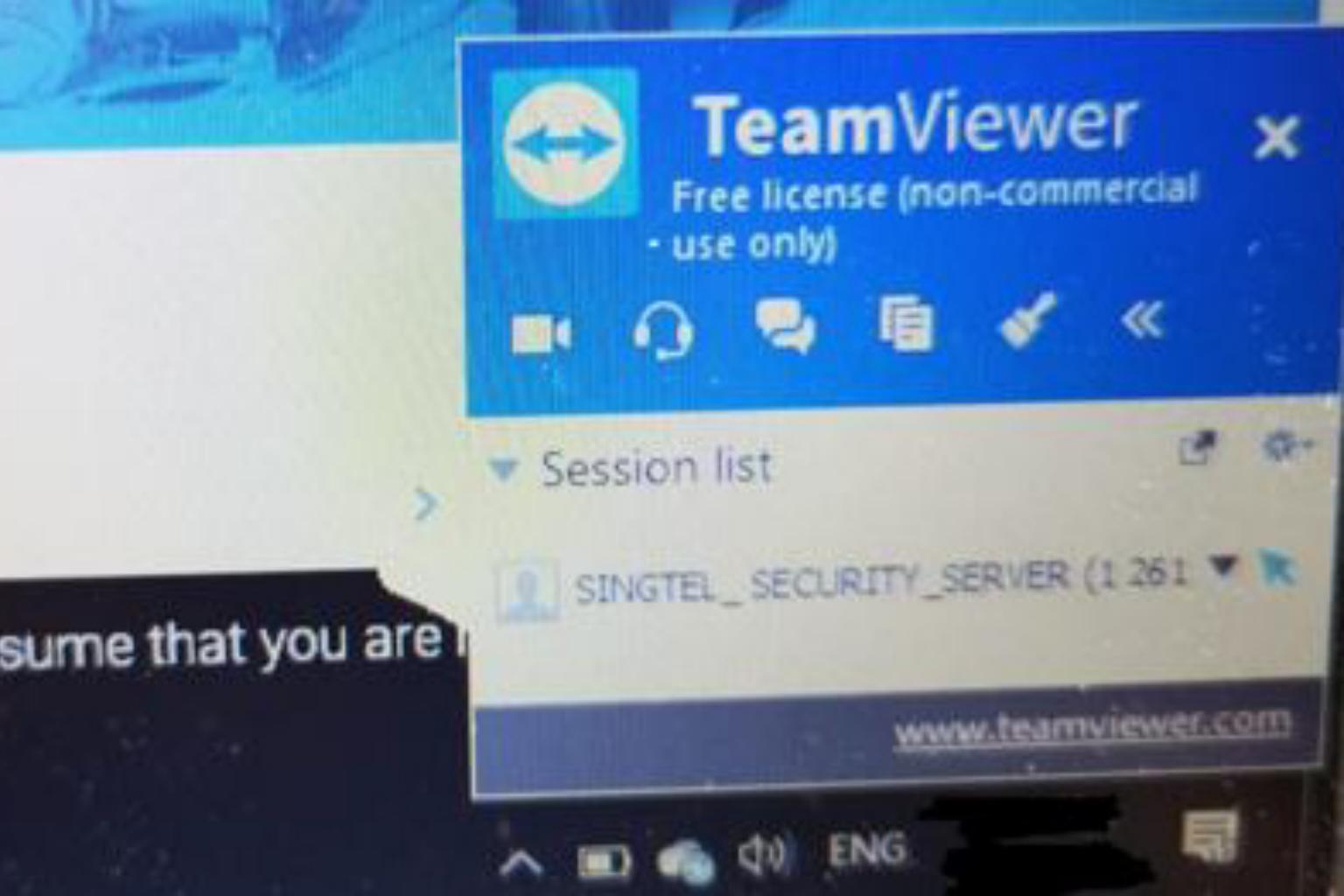$7.7 million lost to tech support scams from Jan to April in big spike over same period last year
Sign up now: Get ST's newsletters delivered to your inbox

Scammers typically persuade victims to install software applications like Teamviewer or Anydesk.
PHOTO: SINGAPORE POLICE FORCE
Cara Wong
Follow topic:
SINGAPORE - More than $7 million has been lost to technical support staff impersonators in the first four months of this year, an increase of more than 40 times from the same period last year.
The scammers deceive victims into believing their Internet connections are compromised, and victims lost some $3.2 million in April alone, when circuit breaker measures were in full force and more people were working or learning from home.
One victim lost $958,500, the highest sum cheated in a single case between January and April.
Similar scams had defrauded people of $169,600 between January and April last year, said police on Thursday (June 4).
Around 70 per cent of victims were aged between 40 and 75, said police, adding that scammers typically persuade their victims to install software applications like Teamviewer or Anydesk under the pretext that this would solve the connection problems.
Once the applications are installed, however, the scammers would have remote access to the computers, and can transfer money out of their victims' bank accounts.
Some fraudsters use a similar tactic by pretending to be with the "Cyber Crime Department of Singapore" or the "Cyber Police of Singapore" - both of which are non-existent organisations.
Victims are told that they have "committed an offence", and must download the applications to help in investigations, said police.
Criminologist Olivia Choy from Nanyang Technological University said people have more opportunities to become victims as they are often with their devices and this is more pronounced as people rely even more on them to communicate with others during the circuit breaker.
"We are all on our devices these days, that's how the majority of people are communicating with each other, so these problems are going to be more prominent and significant," she said.
Victims said scammers are often very convincing, and are quick to "verify" their own identities and allay further concerns.
A victim, a Singapore permanent resident who wanted to be known only as Bavara, 61, was contacted by a man purporting to be from Singtel in mid-April, a week into the circuit breaker period.
Without prompting, the man offered his name, his "employee ID" number and a telephone number, before informing her that her IP address had been compromised, she said.
The man then referred her to another person, who claimed to be with the Cyber Security Agency of Singapore. They needed her assistance in tracking down hackers, she was told.
At their behest, she downloaded the Teamviewer application, and they told her they needed to make a "fake transaction" with her bank account to track down the hackers.
When she raised concerns, they reassured her that she would be reimbursed, even producing a letter of authorisation from her bank, she said.
"(The impersonator) was very confident, polite, knowledgeable. I asked all kinds of questions and he had good answers to everything," said Bavara, who runs a business development consultancy service.
"I was pretty much overwhelmed with all the details," she said, adding that the circuit breaker had added to her anxiety.
The scammers attempted to siphon away $170,000. Fortunately, her bank spotted something fishy and stopped some of the transactions, she said.
Bavara only realised she had been tricked when the police called her to find out more about the suspicious transactions flagged by the bank. She was swindled of around $94,000 in the end, as some transactions were not stopped in time.
"I'm not an expert doubter... that's probably why I paid for it with this kind of experience," she said, adding that she will double-check the identities of unknown callers in future.

